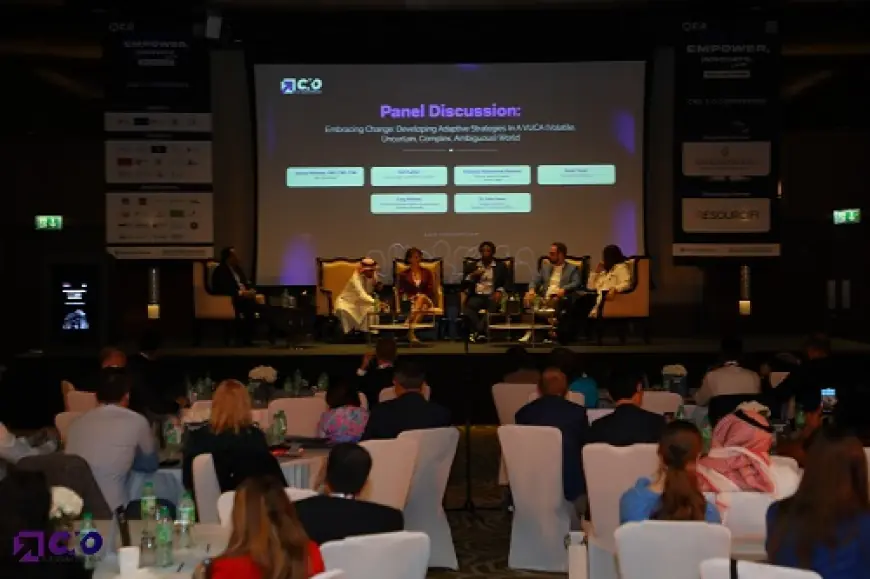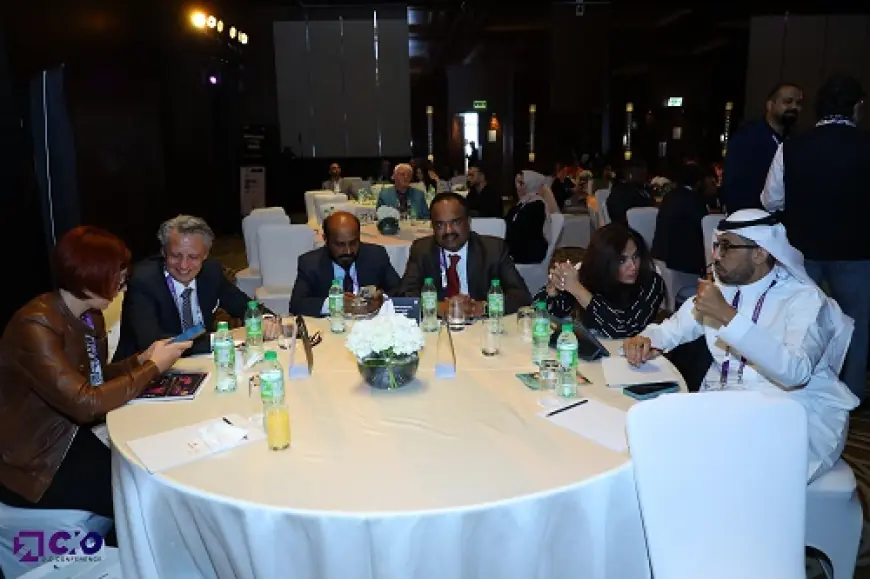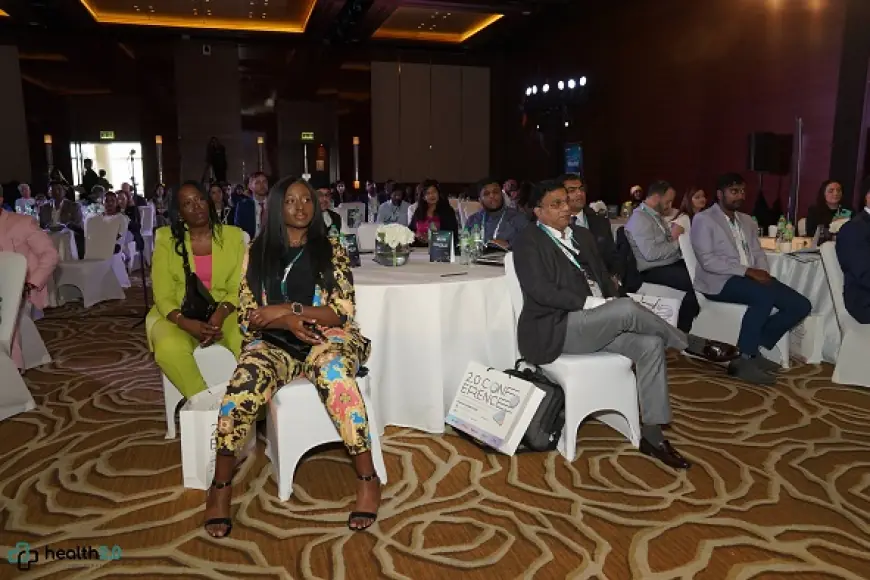CXO 2.0 Conference Shares Strategies For Digital Nomad Leaders Managing Teams Worldwide
What if you could manage a high-performing global team while exploring the world's most breathtaking destinations?

It’s an enticing idea, but leading a team from across different time zones and cultures isn't as simple as it sounds. Digital nomad leaders face unique challenges that demand innovative communication, productivity, and work-life balance. approaches
Connecting with experts at top leadership conferences in 2025, notably the CXO 2.0 Conference, is crucial for digital nomad leaders. These events provide insights into managing global teams effectively. Leaders can learn about cross-cultural strategies, discover new tools, and network with peers facing similar challenges. This blog uncovers leaders' strategies to stay connected, inspire their teams, and make the most of their nomadic lifestyle while maintaining exceptional performance.

1. Mastering Time Zone Differences
-
Schedule Smartly: Use scheduling tools like World Time Buddy to find overlapping work hours across continents.
-
Prioritize Flexibility: Schedule one-on-one check-ins during hours that work for everyone, such as early mornings or late evenings.
-
Batch Tasks By Region: Group work and meetings based on time zones to optimize energy and focus.
-
Set Clear Expectations: Make deadlines and meeting times non-negotiable to maintain structure despite varying time zones.
-
Avoid Burnout: Encourage teams to manage their schedules effectively and prioritize rest to sustain productivity.
2. Communicating Effectively Across Cultures
-
Be Culturally Aware: Research team members' cultural backgrounds to tailor communication styles.
-
Practice Active Listening: Encourage feedback and listen carefully to make all team members feel heard and valued.
-
Leverage Visual Communication: Use tools like Loom or Miro to create clear visual instructions when words might fall short.
-
Set A Communication Rhythm: Establish a consistent pattern for updates, like weekly stand-ups or bi-weekly progress reviews.
According to experts at senior leader conferences, mastering cross-cultural communication is crucial for managing global teams. These events emphasize understanding cultural nuances and adapting leadership styles to foster stronger connections. Leaders gain insights into creating a more collaborative and culturally aware environment.
3. Boosting Productivity Without Micromanaging
-
Focus On Results, Not Hours: Encourage an outcome-driven mindset rather than monitoring the hours worked.
-
Empower Autonomy: Allow team members to take ownership of projects, offering guidance only when needed.
-
Use Project Management Tools: Platforms like Asana or Trello provide visibility into tasks without constant check-ins.
-
Conduct Regular Check-Ins: Short, structured meetings ensure alignment and remove blockers without feeling invasive.
4. Maintaining Work-Life Balance
-
Set Work Hours: Stick to a consistent schedule to prevent burnout and improve mental well-being.
-
Create Dedicated Workspaces: Find coworking spaces or create a productive area in your Airbnb.
-
Schedule Downtime: Plan travel adventures outside work hours to truly recharge and get the most out of each destination.
-
Take Advantage Of Local Resources: Tap into community groups to network and gain support in a new city.
According to experts at senior leader conferences, maintaining a work-life balance is crucial for productivity. These events highlight the importance of setting work hours, creating dedicated spaces, and scheduling downtime. Leaders also learn to leverage local resources to stay recharged and connected.
5. Building Strong Team Relationships
-
Organize Virtual Team-Building Activities: Use games or casual chats to deepen bonds among globally dispersed team members.
-
Celebrate Achievements: Acknowledge milestones and celebrate wins, no matter how small, to keep spirits high.
-
Host In-Person Meetups: Plan an annual retreat or a quarterly get-together to build real-world connections.
-
Show Empathy: Understand that remote team members may face unique challenges and offer support when needed.
6. Leveraging Technology For Seamless Collaboration
-
Choose Reliable Collaboration Tools: For effective communication and file sharing, use Slack, Microsoft Teams, and Google Drive.
-
Embrace Asynchronous Work: Use platforms like Notion or Confluence to allow team members to work on projects at their own pace.
-
Automate Where Possible: Automate time-consuming tasks to streamline processes and increase efficiency.
-
Stay Secure: Prioritize cybersecurity measures to protect sensitive information across multiple locations.
To learn more about leveraging these tools effectively, attending conferences for senior leaders, such as the CXO 2.0 Conference, can provide deeper insights into collaboration strategies. These events highlight the latest technologies and best practices, equipping leaders to manage remote teams more efficiently and successfully.

7. Adapting And Evolving As A Leader
-
Stay Curious: Keep learning about new cultures, trends, and leadership strategies to remain effective.
-
Seek Feedback: Regularly ask team members for input on what’s working and needs improvement.
-
Learn From Setbacks: Treat challenges as learning opportunities to refine leadership skills.
-
Stay Updated: Follow industry trends and adjust your strategies to keep your team competitive.
Conclusion
Digital nomad leaders face a thrilling yet challenging journey as they manage global teams while exploring the world. They turn obstacles into opportunities by mastering time management, communication, and cultural awareness; connecting with experts at top leadership conferences in 2025, such as the CXO 2.0 Conference, can further refine their skills and offer fresh insights. Embracing the right tools and strategies empowers these leaders to inspire their teams and stay ahead of trends. The future of remote leadership is here, and it’s all about adapting, growing, and leading with confidence from anywhere in the world.












